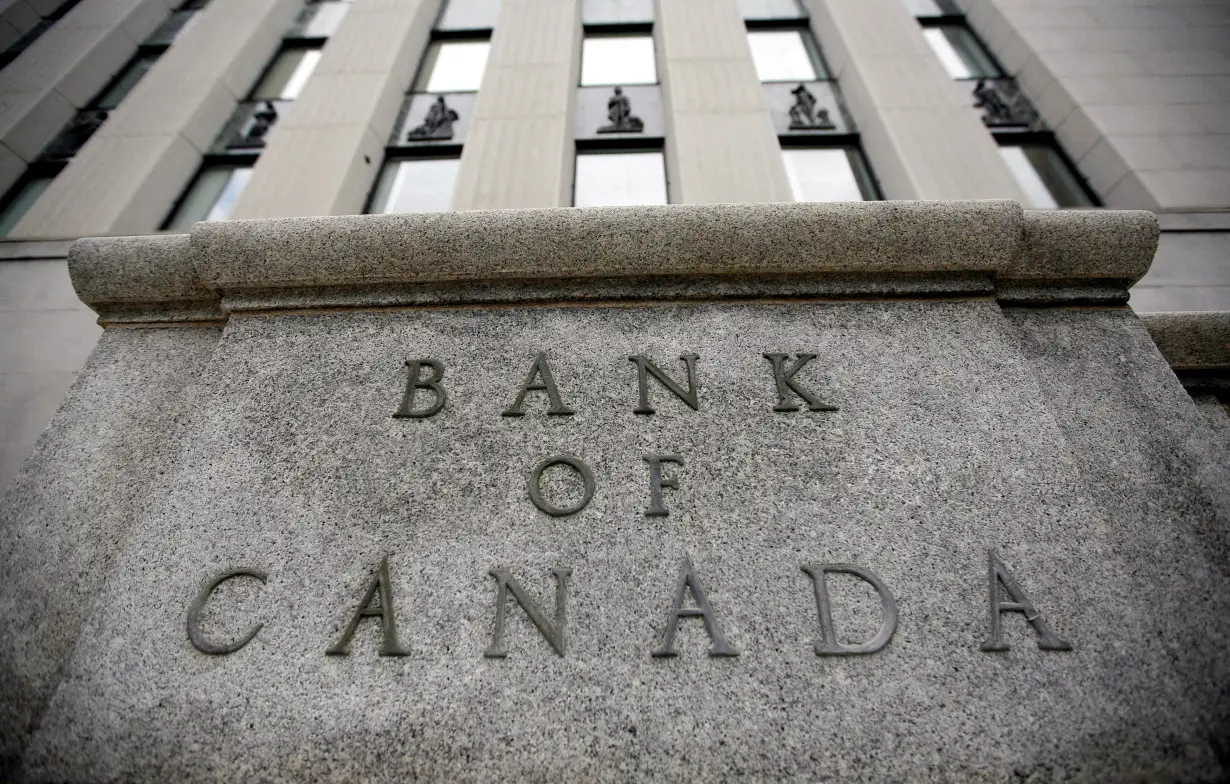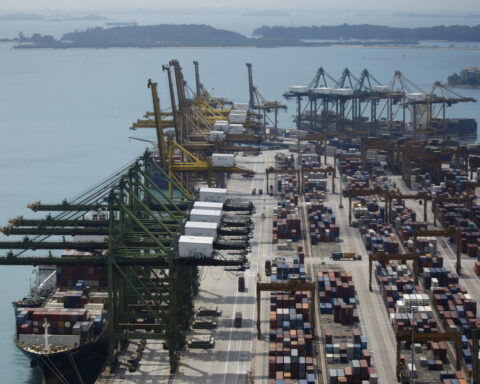By David Ljunggren
OTTAWA (Reuters) -The Canadian financial system remains resilient but the continuing adjustment to higher rates and possible shocks present key risks to stability, Bank of Canada Governor Tiff Macklem said on Thursday.
Interest rates are at a 23-year high and the bank said it was watching the ability of institutions and households to service debts as well as monitoring the valuation of some assets, which appear to have become stretched.
Macklem made his remarks at the launch of the central bank's annual Financial Stability Report.
"Canada's financial system remains resilient. Over the past year, households, businesses, banks and other financial institutions have taken proactive steps to adjust to higher interest rates and to weather economic shocks," he said.
"This adjustment still has some way to go and continues to present risks to financial stability."
Most Canadian mortgages have a five-year term and one concern is what happens when households start renewing at sharply higher rates. Another is the increasing stress shown by renters and households without a mortgage.
Over the last year, the share of borrowers without a mortgage who carry a credit card balance of at least 80% of their credit limit - people seen as significantly likely to miss a future debt payment - has edged up and is now at 23%.
"Higher debt-servicing costs reduce financial flexibility for households and businesses and make them more vulnerable in the event of an economic downtown," said the report.
At the end of 2023, over one-third of new mortgages had a mortgage debt service ratio greater that 25%, double the share of new mortgages with the same ratio in 2019.
Senior Deputy Governor Carolyn Rogers said evidence suggested households had the flexibility to continue servicing debts at higher rates, in part because they had set aside money and were also earning more.
"While the Canadian financial system remains resilient for the time being, we believe central bankers will need to begin lowering rates soon to keep things that way," Royce Mendes, head of macro strategy at Desjardins Group, said in a note.
The bank says it cannot start cutting rates until it is sure than inflation is sustainably on a path down to its 2% target.
After the report was released, money markets saw a roughly 62% chance of a cut in June compared to 60% earlier, while a reduction in July is fully priced in.
Macklem said last week that the central bank was getting closer to being able to start cutting rates but has so far declined to give a timetable.
"(Higher rates) will continue to restrain household spending and that is something that obviously we're taking into account as we think about what interest rates need to be," he told reporters on Thursday.
The report said price corrections could be large and abrupt if expectations about the path for rates changed significantly or the economic outlook worsened.
"Stretched asset valuations may not properly reflect risks to the economic outlook and therefore increase the likelihood of a disorderly price correction," it said.
People and businesses have become more focused on the timing and scope of central bank rates cuts, driving renewed appetite for risk, the report said, noting that benchmark U.S. and Canadian equity indexes had reached all-time highs in 2024.
Valuations remain under pressure in part of the commercial real estate sector, particularly the office subsector.
(Reporting by David Ljunggren, editing by Deepa Babington)

 Trump has begun another trade war. Here's a timeline of how we got here
Trump has begun another trade war. Here's a timeline of how we got here
 Canada's leader laments lost friendship with US in town that sheltered stranded Americans after 9/11
Canada's leader laments lost friendship with US in town that sheltered stranded Americans after 9/11
 Chinese EV giant BYD's fourth-quarter profit leaps 73%
Chinese EV giant BYD's fourth-quarter profit leaps 73%
 You're an American in another land? Prepare to talk about the why and how of Trump 2.0
You're an American in another land? Prepare to talk about the why and how of Trump 2.0
 Chalk talk: Star power, top teams and No. 5 seeds headline the women's March Madness Sweet 16
Chalk talk: Star power, top teams and No. 5 seeds headline the women's March Madness Sweet 16
 Purdue returns to Sweet 16 with 76-62 win over McNeese in March Madness
Purdue returns to Sweet 16 with 76-62 win over McNeese in March Madness








